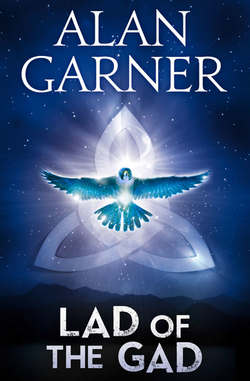Читать книгу The Lad Of The Gad - Alan Garner, Alan Garner - Страница 5
Introduction
ОглавлениеThe oral tradition of folktale no longer exists in the English language. Now, rather than human recollection shared through community of audience and the storyteller’s own belief, the source of every folktale is another book. Made written, folktale is treated as a juvenile branch of literature; but the two are different, and we should mark the differences. The word in the air is not the same word on the page.
We can say that, while folktale scarcely engages the intellect, fiction does not allow imagery to carry the weight. Both forms are valid metaphors of reality; but folktale speaks with the logic of dream; it is supple, changing in the mouth of the storyteller, always archaic, not a single creation, but a weaving of existing threads.
The folktale, when written, should still continue to be worked as it was when it was a spoken form, so that it stays relevant and vital; yet the body of British folktale is obsolete, a reductive continuity of Nineteenth Century texts, which reflect the attitudes of the period when the bulk of our traditional remains was set in print. Since that time, the British folktale has become, properly, a subject for scholarship, and, less properly, a vehicle for the moral instruction of the young. Shorn of its inherent music, mistakenly pursued for rational meaning, folktale has lost its force within the general culture.
Among societies where oral tradition has not been abused, folktale is no dull matter that anyone may touch, but more a collection of patterns to be translated with the skill, bias and authority of the craftsman, who, in serving his craft, allows that craft to serve the people. The contrast between intuitive mediation from within and externally applied precept is nice, and crucial. British folktale, in untutored and literary hands, has become infant homily or adult science. There remains no middle ground.
“The Lad of the Gad” is an attempt to recover a middle ground. I have tried to place my literate ear in the way of a preliterate voice, so that, although the word in the air is not the same word on the page, the force may be recreated and felt. My approach has been to give the stories something of the sequential structure of a controlled fiction while retaining an impression of the original dream.
The stories are taken from the Goidelic layers of British folktale. Another writer would choose differently, and I would choose differently myself at another time. But these are the stories now, because, in a way that I understand only after having listened to them as they were being worked, they offer compensatory images of the world that I cannot find in a more conventional prose today.
| 28 March, 1980 | A.G. |
